Philippi Horticultural Area
The Philippi Horticultural Area (PHA) is located in between the Khayelitsha/Mitchell’s Plain and Cape Flats Planning Districts in the City of Cape Town. The PHA is a unique agricultural precinct that functions as an important “green lung” of the city, and produces approximately 50 percent of the city’s fresh produce and high value crops. In addition, it is an urban asset that contributes to the city’s water resilience, inclusivity, food security and sustainability. However, the PHA is under severe stress due to a changing urban edge and rezoning of land from agricultural to mixed use. Additional challenges for small-scale organic farmers include rising costs of inputs, infrastructure theft, cable theft, loadshedding, waste, policing challenges, high fuel and energy costs, and lack of investment in the PHA.
The case study on the PHA aims to determine the socio-economic feasibility of implementing a wastewater recycling technology on small-scale farms in the PHA. In general, the PHA holds great potential for the use of wastewater recycling technologies due to its abundance of wastewater and organic waste. However, wastewater and the management thereof are a big issue in the PHA, with wastewater making its way to the Cape Flats Aquifer upon which the PHA is located, thereby contaminating it. The use of pesticides and fertilizers on the farms, and the influx of saltwater due to rising sea levels can lead to further aquifer contamination. Also, the infringement of industrial, informal, and residential land uses increases the risk of aquifer contamination and limits the available recharge area due to natural vegetation being replaced with impermeable concrete. A potential solution lies in the installation of a wastewater system – such as the one used in Lynedoch Eco Village – that provides WEF nexus solutions to reduce the impact of waste on the aquifer and support the re-use of the nutrients of the wastewater and organic waste in the production of bio-fertilizer which eliminates the need for chemical fertilizers and pesticides.











